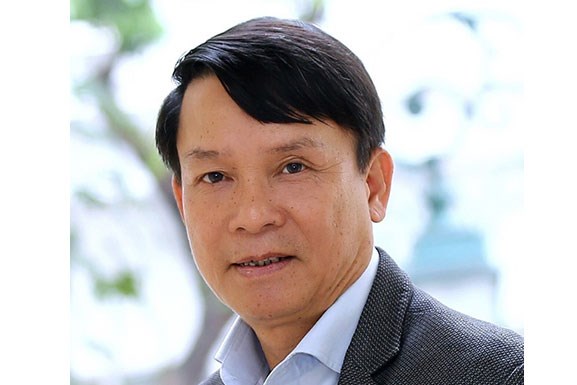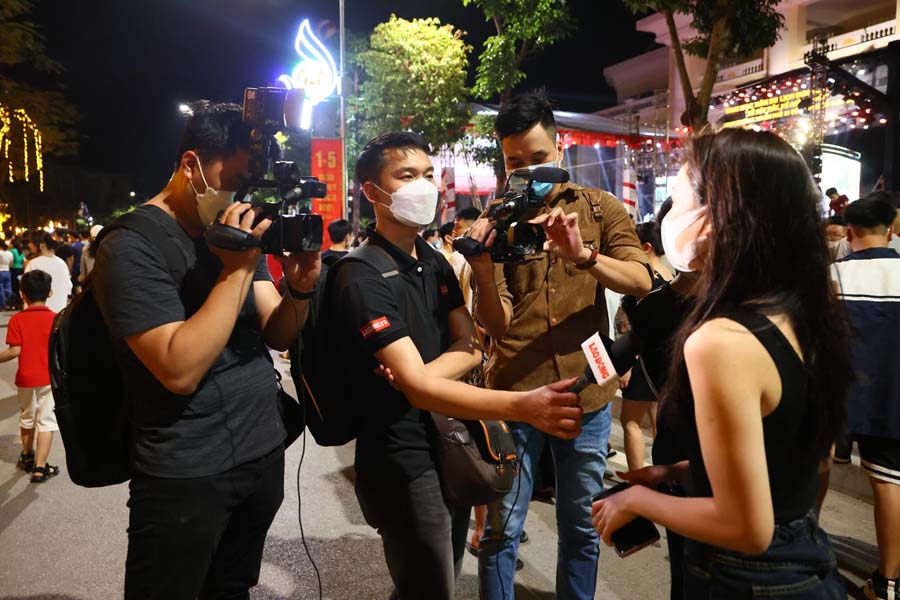The draft Press Law (amended) follows digital trends
Regarding the contents of the draft Press Law (amended) being discussed by the National Assembly, on November 24, speaking with Lao Dong, journalist Nguyen Duc Loi - Permanent Vice President of the Vietnam Journalists Association - said that this draft has promptly updated the movements of domestic and international press, while creating a legal corridor for state management as well as press activities.

According to Mr. Loi, the draft has closely followed the development trend of information technology and the emergence of new types of journalism and new journalism technology.
Therefore, many contents in the draft show a clear step forward compared to the 2016 Press Law, especially in adding regulations suitable for press activities in the digital environment.
One of the notable points is that the draft has included in the legal framework regulations on press activities in cyberspace.
Although digital journalism has developed strongly over the years, the current legal system still lacks specific provisions to manage this field.
The addition of new regulations is considered necessary, meeting the requirements of press management on digital platforms and modern means of transport.
In addition, the draft also mentions new press agency models such as multimedia press agencies and press communication groups, which have appeared in practice but have not been clearly concepted in current law.
Another progress point is the mechanism for creating legal revenue for press agencies in addition to traditional forms such as selling information products, media cooperation or organizing events.
This draft proposes a mechanism for placing orders, bidding, and assigning political tasks, especially for content of community service such as policy information, information for the disadvantaged, people in remote areas.
According to Mr. Loi, this is a way to help the press maintain resources and ensure the implementation of political tasks in difficult press economic conditions.
Social networks are benefiting from mainstream press
In the context of the strong development of artificial intelligence and social networking platforms, the situation of organizations and individuals who are not press agencies constantly citing and re-posting content from mainstream press is becoming more and more popular.
Although they do not own copyright, these social networking information sites still attract a large amount of interaction and enjoy advertising revenue, directly threatening the economic model of professional journalism and infringing on content ownership.
Journalist Nguyen Duc Loi said that this was a clear copyright infringement and caused heavy damage to press agencies.
Many platforms use news cards for profit but do not share revenue, and are not legally responsible. They even cut, edit and transform press works into their own products.
Mr. Loi affirmed that this is a serious copyright infringement.
This situation requires urgent amendments and supplements to specific provisions in the Press Law and related laws to establish a mechanism for management, copyright protection and control of the exploitation of press content on digital platforms.
According to the new draft law, press agencies can still cooperate with media units and content partners to deploy information products.
However, the team of these units must have expertise and knowledge of journalism to ensure that they do not distort information or affect the quality of the work.
On the contrary, if media partners own a team with little professional knowledge and lack of ideological and political stability, press products are easily distorted, reducing the quality of information and the reputation of press agencies.
In all cases, the press agency (the publishing unit) is still the subject with final responsibility for the quality and accuracy of press products.
The revised law helps journalists feel secure in their work
According to journalist Nguyen Duc Loi, the Press Law (amended) is expected to create a solid legal corridor to protect the legitimate rights and interests of journalists against professional risks, helping them feel secure in their work.

At the same time, the law also contributes to strengthening the spirit of social responsibility, professional ethics and professionalism of journalists and reporters in the context of rapidly changing media environment.
Another important point is that the draft law clearly stipulates standards in the process of issuing press cards, requiring periodic professional training, thereby improving the quality of the team and enhancing the ability to handle violations.
These regulations not only tighten professionalism but also contribute to cleaning up the press environment.
In addition to protecting journalists, the new law also clarifies the authority and responsibility of journalists and reporters during their working process, while making the responsibility of heads of press agencies transparent.
This is considered an important step to increase autonomy, responsibility and publicity in professional journalism activities.











